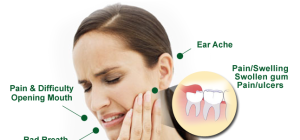 One in six people in Australia suffers from a hearing loss. According to Australian Access Economics consultancy, this number is projected to increase to one in four by 2050.
One in six people in Australia suffers from a hearing loss. According to Australian Access Economics consultancy, this number is projected to increase to one in four by 2050.
This means approximately 8 million Australians with hearing the loss in 2050. Sounds serious, right?
Your decision to do something about your hearing loss begins with an understanding of what is hearing loss and how it may affect your overall life. If you think, hearing loss is a problem associated with old age, then you may be wrong. A hearing impairment can affect the people of all ages. In fact, school-age children and adults suffer from hearing loss the most.
Melbourne is a relatively young city with a growing population of 4.6 million people pose a higher threat of increasing hearing loss issues. In fact,37% of Melbourne’s populationis aged between 25 to 49 years.
Research says that the untreated hearing loss can have fatal consequences, especially as we grow older. If you have noticed yourself asking people to repeat things more often, it may be an early sign of a hearing loss.
While not everyone deals with the same level of hearing loss, the question is – how serious can hearing loss get if ignored?
Ignoring Hearing Loss Can Do Serious Harm
You hear with your brain, not with your ears. So, when you have a hearing loss, the connections in the brain that respond sound reorganizes. Ultimately, it leads to other health issues like:
1) Cognition – The unaddressed hearing loss not only affects the listening ability, but it also affects cognitive functioning up to a great extent. Due to low hearing capacity, the listener tries hard to make sense out of the auditory information. In this process, the cognitive load increases significantly. The people tend to divert from the actual instructions. They invest many efforts in understanding the current conversation.
2) Dementia – People having mild, moderate or severe hearing loss are more likely to develop dementia than compared to people with normal hearing capabilities. Though there are other factors like diabetes, high blood pressure, age, sex, and race; hearing loss and dementia are still strongly associated. The strain of decoding sounds over the years may overpower the brains of people with hearing loss, leaving them more vulnerable to dementia.
3) Depression – Hearing loss and depression go hand-in-hand. It’s a chain, where hearing loss leads to social isolation and this further leads to depression. As per a study by National Institute on Deafness and Other Communication Disorders (NIDCD), more than 11% of people with the hearing loss suffered from depression as compared to only 5% of the general population.
The obvious symptoms of depression like sadness and feeling of hopelessness are caused due to hearing loss. Fatigue, weak concentration, irritability, loss of appetite and interest in hobbies also add up to interfere with daily life.
4) Brain Shrinkage – A number of studies have revealed that older people with hearing loss tend to have a rapid decline in their memory and thinking skills. It has a great impact on the brain activity which ultimately speeds up the shrinkage in older adults. This is logical as if you do not actively use those parts of the brain responsible for speech and sound processing, the brain will begin to shrink faster than usual due to hearing loss.
5) Risk of Falling – A Johns Hopkins study showed that the middle-aged people, i.e. 40 to 69 years with even just mild hearing loss were nearly three times more likely to have a history of falling. Hearing loss decreases the awareness of the surrounding environment and increases the cognitive load. In turn, the risk of falling increases.
6) Mortality – People with the untreated hearing loss remain at the higher risk of cardiovascular disease contributing to the increased mortality rate. On the other hand, the older adults who have a more severe hearing loss and use the hearing aid, have significantly lower mortality risk compared to them.
Addressing Hearing Loss is Important
Health: Hearing loss is a major public health issue that is the third most common physical condition after arthritis and heart disease. The social isolation due to hearing loss and the lack of stimulation delivered through the ears to the brain are the major reasons for this connection. The people with untreated hearing loss are seen less healthy than those seeking the treatment.
Emotions: A comparison of older adults using the hearing aids and the ones who are not, depict a significance difference in the general satisfaction and happiness in life. The people who did not treat their hearing loss issue were more likely to report sadness, depression, anxiety, worry, insecurity, less social activity and emotional turmoil. The major reason behind this is communication. With the hearing loss, people find it difficult to have smooth communication, demanding them to cut off from the rest of the world.
Finances: In order to avoid the cost of hearing aids, a majority of people refuse to undergo hearing loss treatment. But, on the other hand, they end up spending more on serious health disorders resulted from hearing loss. Their inability to engage in everyday communication and low performance can also result in affecting the income!
Finding Help for Hearing Loss
If you sense a hearing loss for yourself or for any of your family member, immediately take action.
Visit an audiologist in Melbourne to simply get a hearing screening done. Professional and trained audiologists can help in all aspects of hearing loss management and communication. Usually, a hearing test is conducted to determine how serious the hearing loss is. Ask the audiologist for the best hearing solution, they will suggest you a solution based on your level of hearing loss, aesthetic preferences, lifestyle needs and budget. Hearing aids are getting extremely popular nowadays and people are opting for them because of easy availability and comfort.
You can consult your audiologist for the types of hearing aids available in Melbourne, such as invisible hearing aids, custom-made to fit in the ear canal aids, behind the ear aids, etc.
Acquired hearing loss can appear at any time in one’s life, due to a disease or even an injury. Don’t ignore the hearing loss as it can result in a major health issue.







